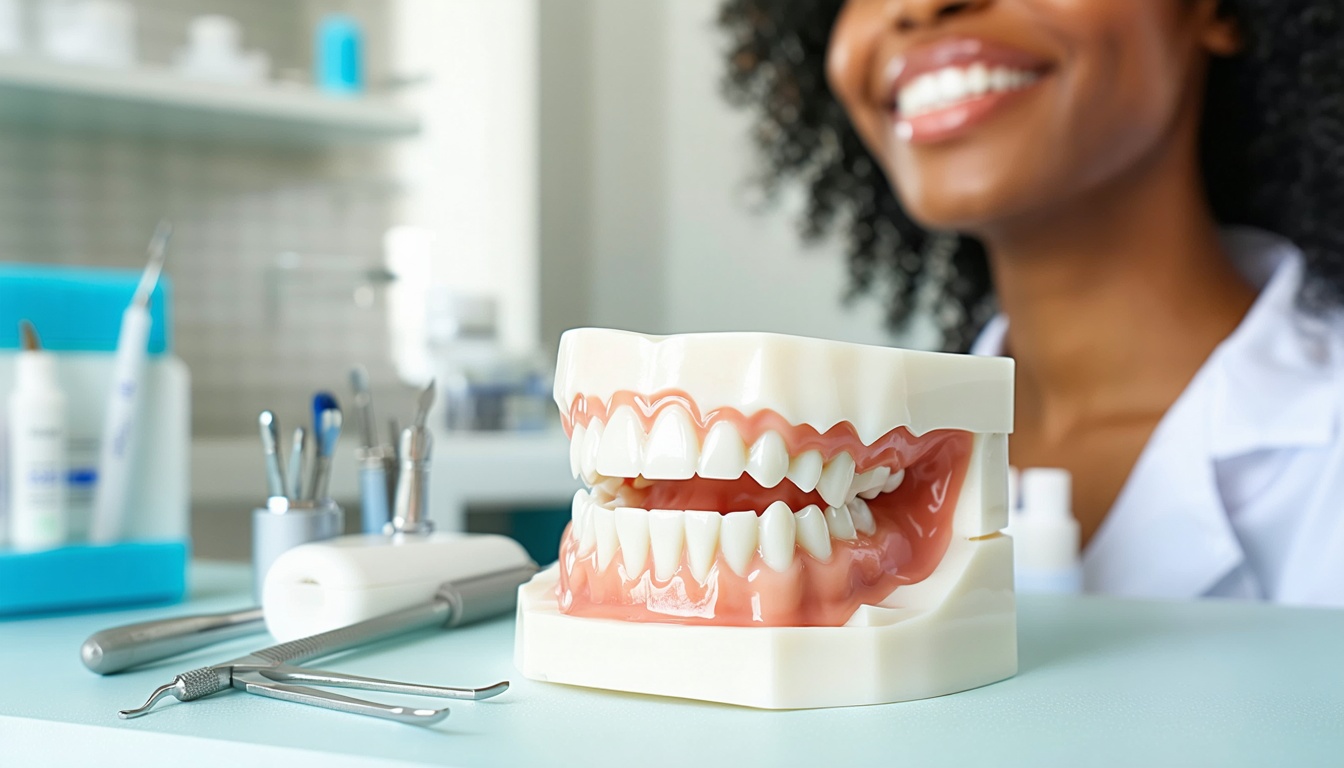Why Choose Belvedere Dentistry
Choosing the right dental provider is crucial for you and your family’s oral health. At Belvedere Dentistry, you will experience personalized care tailored to your individual needs, along with a wide range of comprehensive services that cover all aspects of dental care.
Personalized Dental Care
Belvedere Dentistry emphasizes the importance of personalized dental care. Every patient is unique, and the team understands that your needs will differ based on various factors such as age, lifestyle, and oral health conditions. The professionals at Belvedere take the time to listen to your concerns and create a treatment plan that aligns with your specific dental requirements. You will receive individualized attention, ensuring that you feel comfortable and informed every step of the way.
Comprehensive Dental Services
Belvedere Dentistry offers comprehensive dental services to meet all your needs under one roof. Whether you are seeking routine check-ups, dental crowns and bridges, or more specialized treatments, this facility has you covered. Some services include:
| Service Category | Description |
|---|---|
| Preventive Dentistry | Regular check-ups, cleanings, and oral cancer screenings |
| Restorative Dentistry | Treatments such as dental crowns, bridges, and fillings |
| Cosmetic Dentistry | Teeth whitening, veneers, and other aesthetic procedures |
| Pediatric Dentistry | Specialized care for children, including dental sealants for kids and emergency pediatric services |
| Orthodontics | Options such as traditional braces and Invisalign |
This array of services ensures that you can find everything you need to keep your smile healthy and beautiful. For families, having a family dentist near me that caters to all ages simplifies the process of maintaining good oral health for everyone.
Whether you are a new patient or a returning one, Belvedere Dentistry is prepared to provide exceptional care that is both effective and compassionate. Choose a dental practice that prioritizes your needs and promotes a healthy smile for you and your loved ones.
Benefits of Dental Crowns and Bridges
Dental crowns and bridges offer numerous benefits that enhance oral health and improve the overall appearance of your smile. Understanding these advantages can help you make informed decisions regarding your dental care.
Functional Advantages
Dental crowns serve multiple functional purposes. They are utilized to cover damaged, weakened, or unsightly teeth, restoring both aesthetics and functionality. Crowns provide extra strength to fractured, root canal-treated, or discolored teeth that don’t respond to whitening attempts, ensuring that the integrity of your teeth is maintained (Brend Dental). With the application of crowns, you can experience:
| Functionality | Benefits |
|---|---|
| Protection | Safeguards damaged teeth from further decay or fracture. |
| Durability | Enhances longevity of teeth, reducing the need for further dental work. |
| Restoration | Returns functionality to teeth that might otherwise cause gum irritation or pain. |
| Improved Bite | Aids in restoring normal bite alignment, enhancing chewing efficiency. |
Bridges, on the other hand, are designed to replace missing teeth, bridging gaps in your smile. This not only boosts your confidence but also restores proper chewing and speaking functions. Additionally, they help prevent the remaining teeth from shifting out of alignment.
Aesthetic Enhancements
In addition to their functional properties, dental crowns and bridges significantly improve the appearance of your smile. Crowns can be crafted from various materials to achieve the most natural look. For instance, all-ceramic or porcelain crowns closely mimic the appearance of natural teeth, making them suitable for those looking for aesthetic enhancement, especially for visible teeth.
| Material | Aesthetic Appeal | Other Advantages |
|---|---|---|
| All-Ceramic | High aesthetic; mimics natural teeth | Ideal for those with metal allergies. |
| Porcelain-Fused-to-Metal | Natural look with sturdiness | Balances durability and appearance, though can wear opposing enamel. |
| Zirconium Dioxide | Highly durable; minimal impact on opposing teeth | Offers strength and a natural appearance. |
By choosing crowns that suit your aesthetic needs, you can enhance your smile and improve your self-esteem. Bridges also play a crucial role in aesthetic enhancements by restoring the fullness of your smile and preventing a sunken appearance that can occur with missing teeth.
Considering the extensive benefits of dental crowns and bridges, it is essential to consult with a trusted dental professional who can guide you through your options. For further information on restorative options, feel free to explore our services related to general dentistry or find a family dentist near you who can assist with your needs.
Understanding Dental Crowns
Dental crowns are essential for restoring the shape, strength, and appearance of damaged teeth. Choosing the right type of crown is crucial for achieving the best possible results. In this section, you will learn about the various materials used for dental crowns and their lifespan and durability.
Types of Dental Crown Materials
When selecting a dental crown, several materials can be considered, each with its distinct advantages. Here are the most common types of materials used for dental crowns:
| Crown Material | Description | Aesthetic Appeal | Durability |
|---|---|---|---|
| Gold Alloy | Made from a combination of gold and other metals, providing strength. | Low | Very High |
| Metal Alloys | Strong crowns made from various metals; great for hidden teeth. | Low | High |
| Porcelain | Offers a natural appearance; often used for front teeth. | High | Moderate |
| Ceramic | Provides a natural look, ideal for front teeth, less durable than metal. | High | Moderate |
| Acrylic | Often used for temporary crowns; less durable. | Moderate | Low |
| Porcelain-Fused-to-Metal (PFM) | Combines metal durability with a natural look. | High | Moderate |
Each material has its own pros and cons; therefore, it is advisable to discuss with your dentist accepting new patients near me to determine the best choice for your specific needs based on durability, aesthetics, and budget (Colgate).
Lifespan and Durability
The lifespan of dental crowns varies based on the material used and your oral hygiene practices. Here is a general overview of the durability you can expect from different types of crowns:
| Crown Material | Expected Lifespan |
|---|---|
| Gold Alloy | 20-30 years |
| Metal Alloys | 10-15 years |
| Porcelain | 5-15 years |
| Ceramic | 5-15 years |
| Acrylic | 1-3 years (temporary use) |
| Porcelain-Fused-to-Metal | 10-15 years |
The longevity of dental crowns can be influenced by factors such as your oral care routine, regular check-ups, and any existing dental conditions. Make sure to maintain proper hygiene and schedule consistent appointments for teeth cleanings and check-ups. Discuss potential issues with your dental professional to ensure that you receive the highest quality of care for your dental crowns and bridges.
Exploring Dental Bridges
Purpose of Dental Bridges
Dental bridges serve a critical role in oral health by closing gaps created by missing teeth. They are artificial teeth that fill these spaces and are anchored by dental crowns placed on the teeth adjacent to the gap. This approach is less invasive than dental implants and provides a functional solution for restoring your smile and dental function. Bridges can replace one to three consecutive missing teeth; in some cases, they can even replace up to four adjacent teeth (Cleveland Clinic).
Bridges not only improve your ability to chew and speak clearly but also help maintain the shape of your face. By preventing remaining teeth from shifting out of position, dental bridges play a significant role in keeping your mouth healthy. Additionally, a well-fitted bridge can enhance your smile’s appearance, ensuring that your new teeth look natural.
| Feature | Description |
|---|---|
| Purpose | Replace missing teeth |
| Structure | Two crowns supporting a bridge of artificial teeth |
| Replacement Range | 1 to 4 consecutive teeth |
| Invasiveness | Less invasive than dental implants |
Bridge Placement Process
The placement process for dental bridges involves several steps to ensure a proper fit and functionality. Here’s a breakdown of the typical procedure:
-
Initial Consultation: You will meet with your dentist to discuss your needs, which will include a thorough examination and possibly x-rays to assess your oral health.
-
Preparation: The teeth adjacent to the gap will need to be prepared. This usually involves reshaping these teeth to accommodate the dental crowns that will be placed on them. The dentist will administer local anesthesia to make you comfortable during the procedure.
-
Impressions: After the adjacent teeth are prepared, the dentist will take impressions of your mouth. These molds are essential for creating a custom-fitted bridge that aligns with your bite and fits well with your remaining teeth.
-
Temporary Bridge: While the permanent bridge is being fabricated (which usually takes a week or two), you may receive a temporary bridge to protect the prepared teeth and maintain aesthetics.
-
Fitting and Adjustment: Once the permanent bridge is ready, you will return to the dentist for fitting. Your dentist will place the bridge and make necessary adjustments to ensure a comfortable fit.
-
Final Placement: After making adjustments, the bridge will be permanently cemented into place. Your dentist will discuss post-placement care and how to clean and maintain your new bridge effectively.
Bridges offer a great solution for tooth loss, providing both functional and aesthetic benefits. To explore more options and general services related to dental care, consider visiting our links on general dentistry and family dentist near me.
Factors to Consider
When considering dental crowns and bridges, there are several important factors to keep in mind regarding maintenance, care, and financial aspects.
Maintenance and Care
Proper maintenance is essential for the longevity and effectiveness of dental crowns and bridges. Good oral hygiene practices can help ensure that these restorations last a lifetime. Here are some key tips for maintaining your crowns and bridges:
| Care Method | Recommendation |
|---|---|
| Brushing | Brush at least twice a day with fluoride toothpaste. |
| Flossing | Floss daily to prevent plaque buildup between the teeth and around the crowns or bridges. |
| Dental Cleanings | Schedule regular dental cleanings every six months to remove tartar and plaque. |
| Mouth Rinses | Use antimicrobial mouth rinses to further reduce bacteria in the mouth. |
Following these guidelines can significantly extend the lifespan of your dental restorations. Regular dental check-ups are crucial for early identification of potential issues, thereby maximizing the durability of dental bridges (Aesthetic Dental Associates).
Cost and Insurance Coverage
The cost of dental crowns and bridges can vary widely depending on numerous factors, including the materials used and the complexity of the procedure. Generally, dental crowns can range from $800 to $3,000 per tooth, while bridges may cost between $2,000 and $5,000. To get a clearer picture, here’s a breakdown of the average costs:
| Procedure | Average Cost |
|---|---|
| Dental Crown | $800 – $3,000 |
| Dental Bridge | $2,000 – $5,000 |
Insurance coverage varies by plan; many dental insurance providers offer partial coverage for crowns and bridges under restorative services. It is advisable to check with your insurance provider to understand your coverage options and any out-of-pocket costs that may be involved.
If you’re searching for a reputable provider, consider looking for a family dentist near me who can guide you through the options and financing available. Whether you’re looking for a dentist accepting new patients near me or exploring various general dentistry services, Belvedere Dentistry can meet all your dental needs.
Risks and Complications
Potential Issues with Crowns
While dental crowns serve essential functions in restoring decayed or damaged teeth, several potential issues may arise from their placement. Here are some common complications associated with crowns:
| Potential Issue | Description |
|---|---|
| Teeth Sensitivity | Patients may experience increased sensitivity to hot or cold foods following crown placement. This sensitivity can be temporary or, in some cases, may persist. |
| Chipped Crowns | Crowns can chip or crack due to excessive force or impact, necessitating replacement. |
| Loose Crowns | Over time, crowns may become loose, which can lead to discomfort or the need for re-cementing. |
| Allergic Reactions | Some patients might have allergic reactions to the materials used in crowns, requiring alternative materials for future restorations. |
| Gum Disease | Poor oral hygiene can lead to gum disease, affecting the health of the dental crown and the surrounding tissues. |
Patients are advised to monitor their crowned teeth and consult their dentist immediately if complications arise (Healthline).
Complications of Dental Bridges
Dental bridges are effective for replacing missing teeth, but they come with their own set of potential complications. Understanding these risks is essential for anyone considering this restorative option:
| Potential Complication | Description |
|---|---|
| Persistent Pain | Patients might experience ongoing discomfort around the bridge area, which may indicate issues with the bridge fit or surrounding teeth. |
| Sensitivity | Increased sensitivity to hot or cold foods can occur, particularly during the adjustment period. |
| Gum Issues | Swelling or tenderness in the gums is possible, signaling a need for dental evaluation. |
| Chewing Difficulty | Difficulty in chewing can arise if the bridge does not fit well or if there are underlying dental health issues. |
| Damage to Adjacent Teeth | As the crowns fitted on the abutment teeth require adjustments, there is a risk of damaging these surrounding healthy teeth (Elite Dental & Denture). |
Additionally, the space left by the missing tooth could increase the risk of decay and cavities in neighboring teeth (Aesthetic Dental Associates).
It’s worth noting that placing a dental bridge typically involves multiple visits, including preparing abutment teeth and fabricating custom crowns and pontics, which can take several weeks (Palm Beach Dentistry).
Being aware of the risks and actively discussing any concerns with your dental provider can lead to a successful experience with dental crowns and bridges. For a comprehensive approach to your dental health, you may want to consider visiting a family dentist near me to evaluate your options.










